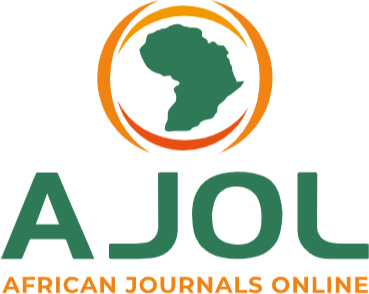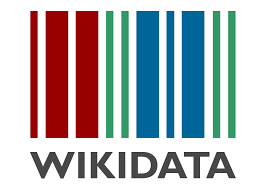Organizational Leadership: An Integrative Review
DOI:
https://doi.org/10.4314/academicus.v2i2.2Keywords:
Organização, liderança organizacional, estilo de liderança, clima organizacionalAbstract
This article provides a review of key organizational leadership approaches: transformational, transactional, servant and authentic leadership. Each leadership style is explored in terms of its distinct characteristics, perceived benefits, and associated challenges. Transformational leadership emphasizes inspiration and change, while transactional leadership focuses on rewards and compliance. Conversely, servant leadership prioritizes follower well-being and development. Comparing these approaches underscores the importance of selecting and adapting leadership styles according to specific organizational needs and culture, aiming to foster effective and inclusive leadership.
Keywords: Transformational leadership, transactional leadership, servant leadership, authentic leadership, leadership characteristics, organizational effectiveness.
Downloads
References
Avolio, B. J., & Gardner, W. L. (2005). Authentic leadership development: Getting to the root of positive forms of leadership. The Leadership Quarterly, 16(3), 315-338.
Avolio, B. J., & Yammarino, F. J. (2002). Transformational and Charismatic Leadership: The Road Ahead. Elsevier Science. https://www.researchgate.net/publication/258221547_Transformational_and_Charismatic_Leadership .
Bailey, P. (2020). The role of databases in academic research. Journal of Academic Research, 12(3), 45-67.
Barbuto, J. E., Jr., & Wheeler, D. W. (2006). Scale development and construct clarification of servant leadership. Group and Organizational Management, 31(3), 300-326.
Bardin, L. (2011). Análise de conteúdo. Edições 70.
Bass, B. M. (1985). Leadership and Performance Beyond Expectations. Free Press. https://books.google.co.ao/books/about/Leadership_and_Performance_Beyond_Expect.html?id=NCd-QgAACAAJ&redir_esc=y
Bass, B. M., & Riggio, R. E. (2006). Transformational leadership (2nd ed.). Lawrence Erlbaum Associates.
Blanchard, K. (1985). Situational Leadership II: The Article. The Ken Blanchard Companies. https://www.lifelongfaith.com/uploads/5/1/6/4/5164069/situational_leadership_article.pdf .
Botelho, L. L. R., Cunha, C. J. C. A., & Macedo, M. (2011). O método da revisão integrativa nos estudos organizacionais. Revista Eletrônica Gestão e Sociedade, 5(11), 121-136.
Burns, J. M. (1978). Leadership. Harper & Row. https://psycnet.apa.org/record/1980-03173-000 .
Dupuis, J. (2013). La gestion interculturelle: Enjeux et perspectives. Presses de l'Université du Québec.
Folle, A. J., & de Almeida Cunha, C. J. (2015). Liderança autêntica: uma revisão integrativa. NAVUS - Revista de Gestão e Tecnologia, 5(2), 60-72. https://www.redalyc.org/pdf/3504/350450617007.pdf.
Greenleaf, R. K. (1977). Servant Leadership: A Journey into the Nature of Legitimate Power and Greatness. Paulist Press. https://www.urbanleaders.org/620Leadership/92Readings/articles/Greenleaf-Servant%20Leadership.pdf .
Gronn, P. (2002). Distributed leadership as a unit of analysis. The Leadership Quarterly, 13(4), 423-451.
Hersey, P., & Blanchard, K. H. (1969). Life cycle theory of leadership. Training and Development Journal, 23(5), 26-34.
House, R. J. (1977). A 1976 theory of charismatic leadership. In J. G. Hunt & L. L. Larson (Eds.), Leadership: The Cutting Edge (pp. 189-207). Southern Illinois University Press.
Ireland, R. D., & Hitt, M. A. (2005). Achieving and maintaining strategic competitiveness in the 21st century: The role of strategic leadership. Academy of Management Executive, 19(4), 63-77.
Jones, L. (2019). Access to academic literature: A comparison of search tools. Academic Tools Review, 15(4), 78-91.
Judge, T. A., & Piccolo, R. F. (2004). Transformational and Transactional Leadership: A Meta-Analytic Test of Their Relative Validity. Journal of Applied Psychology, 89(5), 755-768.
Liden, R. C., Wayne, S. J., Liao, C., & Meuser, J. D. (2014). Servant Leadership and Serving Culture: Influence on Individual and Unit Performance. Academy of Management Journal, 57(5), 1434-1452.
Melo, P. C., & Silva, M. T. (2017). Liderança e Gestão: Teorias, Estilos e Perspectivas. Editora Sílabo.
Oliveira, R. (2017). Metodologias de análise em revisões integrativas: Um guia prático. Revista de Pesquisa Científica, 12(4), 55-62.
Rego, A., & Cunha, M. P. (2015). Liderança positiva: Como desenvolver as virtudes e capacidades que inspiram os outros. Actual Editora. https://silabo.pt/catalogo/gestao-organizacional/lideranca/livro/lideranca-positiva/ .
Rego, A., & Pina e Cunha, M. P. (2008). Organisational Justice and Citizenship Behaviours: A Study in the Portuguese Cultural Context. Applied Psychology, 57(2), 213-231.
Silva, M. (2016). Métodos de categorização em revisões integrativas. Revista de Metodologia Científica, 10(2), 40-55.
Smith, R. (2018). Evaluating the impact of scientific publications: A review of Web of Science. Science Metrics, 9(2), 122-135.
Souza, A. (2015). Revisão integrativa: importância da definição de critérios. Revista Brasileira de Pesquisa Acadêmica, 14(1), 32-44.
Spears, L. C. (1998). Insights on Leadership: Service, Stewardship, Spirit, and Servant-Leadership. John Wiley & Sons. https://digitalcommons.lmu.edu/cgi/viewcontent.cgi?article=1161&context=ce .
Walumbwa, F. O., Avolio, B. J., Gardner, W. L., Wernsing, T. S., & Peterson, S. J. (2008). Authentic leadership: Development and validation of a theory-based measure. Journal of Management, 34(1), 89-126.
Weber, M. (1947). The Theory of Social and Economic Organization. Free Press. https://www.scirp.org/reference/referencespapers?referenceid=2233914.
Whittemore, R., & Knafl, K. (2005). The integrative review: updated methodology. Journal of Advanced Nursing, 52(5), 546-553. https://pubmed.ncbi.nlm.nih.gov/16268861/ .
Yukl, G. (2013). Leadership in Organizations (8th ed.). Pearson Education. https://nibmehub.com/opac-service/pdf/read/Leadership%20in%20Organizations%20by%20Gary%20Yukl.pdf
Downloads
Published
How to Cite
Issue
Section
License
Copyright (c) 2024 Lucinda De Carvalho, Rosa Gomes, Nelson Yambo

This work is licensed under a Creative Commons Attribution-NonCommercial-NoDerivatives 4.0 International License.

























